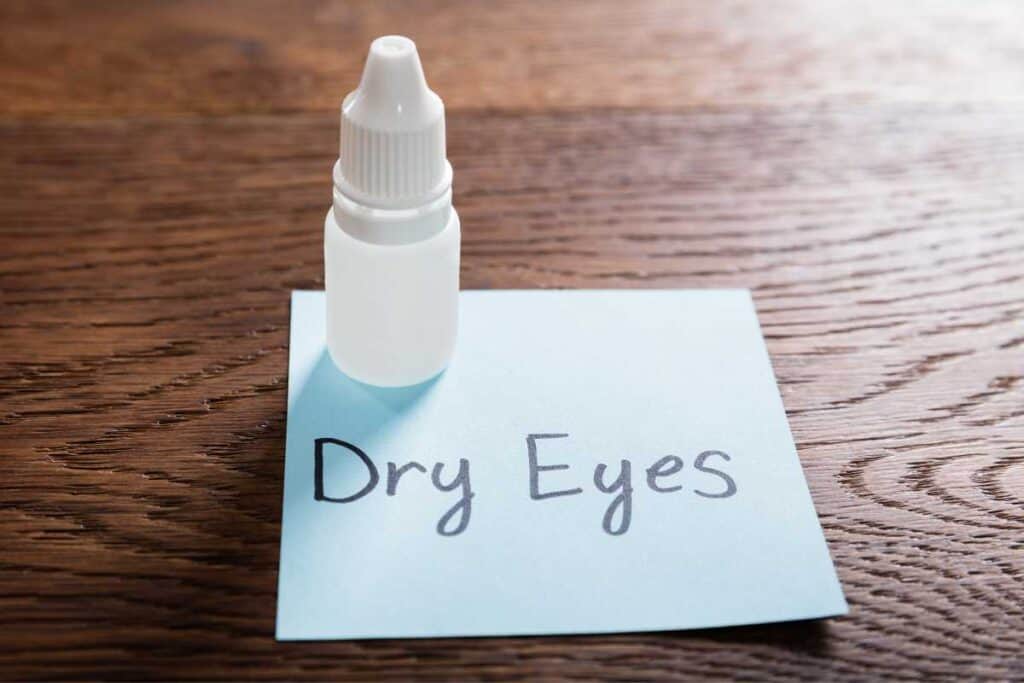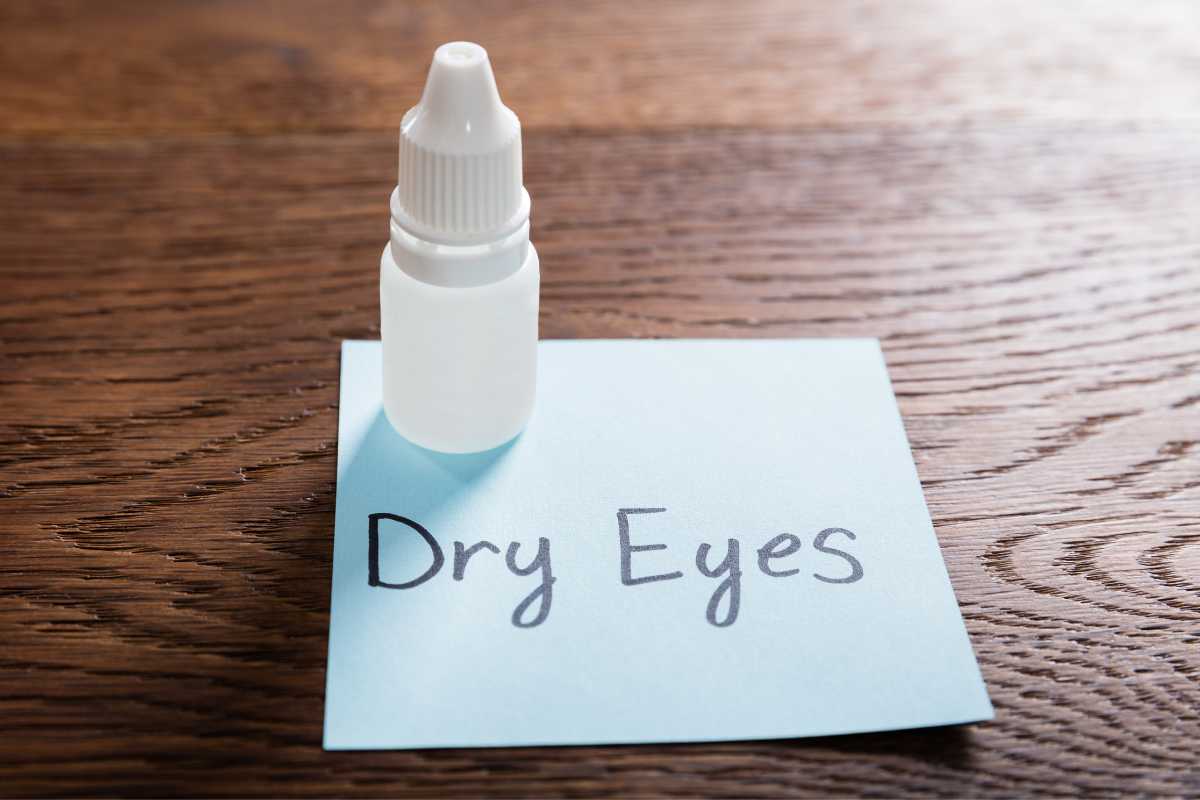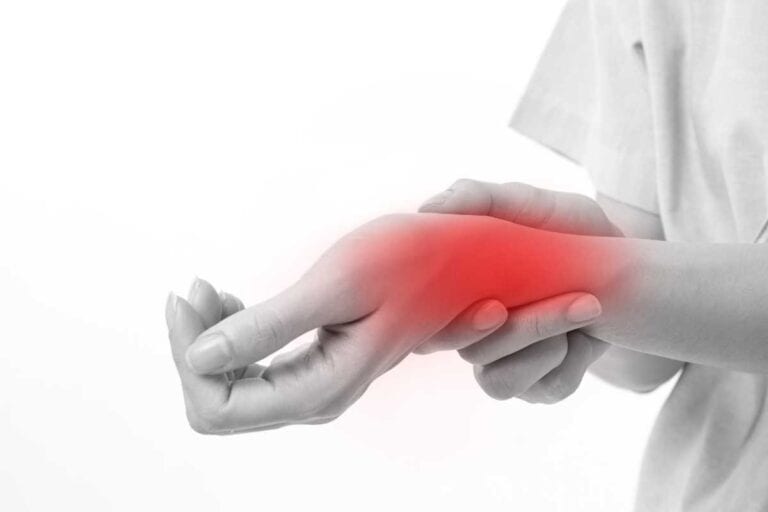Prophetic Medicine for Dry Eyes: Natural Remedies & Relief
Prophetic Medicine for Dry Eyes: Natural Remedies & Relief

Prophetic medicine, also known as Islamic medicine, holds a significant place in the history of healthcare practices. It encompasses a range of natural remedies and health practices that are derived from the teachings of Islam and the life of Prophet Muhammad (peace be upon him).
In recent years, there has been growing interest in the application of prophetic medicine for various health conditions, including dry eyes.
Dry eyes can cause discomfort, irritation, and blurry vision, affecting one’s daily activities. While modern medicine offers various treatments for this condition, many individuals are turning to alternative approaches rooted in prophetic medicine.
The importance placed on natural remedies within this tradition has piqued curiosity about their potential benefits for dry eyes.
This blog post aims to explore the historical significance of prophetic medicine and its link to Islamic teachings regarding health practices. It will delve into the importance of natural remedies in treating dry eyes and provide an overview of the potential benefits associated with prophetic medicine.
By examining these aspects, readers can gain insights into this ancient practice and its potential role in managing dry eyes.
| Causes of Dry Eyes |
|---|
| Aging |
| Dry climate |
| Windy conditions |
| Air conditioning |
| Smoking |
| Screen time |
| Certain medications |
| Medical conditions |
| Hormonal changes |
| Contact lens wear |
“Explore our latest articles on Prophetic Medicine to discover simple, natural remedies that can improve your health. Check them out now and start feeling better!“
Understanding Dry Eye as an Ocular Surface Disease
Dry eye disease, also known as dry eye syndrome, is a common ocular surface disease that affects millions of people worldwide. It occurs when there is an imbalance in the quantity or quality of tears produced by the eyes. This condition can lead to discomfort, irritation, and even damage to the eye tissues if left untreated.
Definition and Symptoms of Dry Eye
Dry eye is characterized by a lack of sufficient moisture on the ocular surface. The tear film, which normally coats the eyes to keep them lubricated and nourished, becomes inadequate in individuals with this condition. As a result, they may experience various symptoms such as:
- Persistent dryness or grittiness in the eyes
- Redness and inflammation
- Itching or burning sensation
- Sensitivity to light
- Blurred vision
- Excessive tearing (as a reflex response to dryness)
- Feeling like something is stuck in the eye
Impact on Ocular Surface Health
The health of the ocular surface depends on a well-functioning tear film. When dry eye disease disrupts this delicate balance, it can have detrimental effects on both the eyes’ comfort and visual acuity. Without proper lubrication, friction between the eyelids and cornea increases, leading to irritation and potential damage.
Moreover, tears play a crucial role in providing essential nutrients and oxygen to the front surface of our eyes. When these vital components are lacking due to insufficient tear production or poor tear quality, it can compromise the overall health of our eye tissues. This makes individuals with dry eye more susceptible to other ocular diseases and disorders.
Prevalence and Risk Factors Associated with Dry Eye
Dry eye is a prevalent condition that affects people across all age groups but tends to be more common among older adults. According to studies, approximately 16 million adults in America alone are diagnosed with moderate-to-severe dry eye disease. The prevalence increases with age, affecting around 10% of individuals aged 50 and older.
Several risk factors contribute to the development of dry eye, including:
- Aging: As we age, tear production decreases naturally.
- Gender: Women are more prone to dry eye due to hormonal changes, especially during menopause.
- Environmental conditions: Dry or windy climates, air conditioning, and excessive screen time can exacerbate symptoms.
- Medical conditions: Certain systemic diseases like diabetes, rheumatoid arthritis, and thyroid disorders increase the likelihood of developing dry eyes.
- Medications: Antihistamines, decongestants, antidepressants, and hormone replacement therapies can cause or worsen dry eye symptoms.
Importance of Early Diagnosis and Treatment
Early diagnosis and treatment play a crucial role in managing dry eye effectively. Ignoring the symptoms or assuming they will resolve on their own can lead to further complications and discomfort. Seeking professional help from an ophthalmologist or optometrist is essential for proper evaluation and personalized treatment plans.
Treatment options for dry eye may include:
- Artificial tears: Over-the-counter lubricating eye drops that provide temporary relief.
- Prescription medications: Anti-inflammatory drugs or immunosuppressive agents may be prescribed in severe cases.
- Punctal plugs: Small devices inserted into the drainage holes of the eyes to reduce tear drainage.
Types and Causes of Dry Eye
Dry eyes, also known as dry eye syndrome or keratoconjunctivitis sicca, is a common ailment that affects millions of people worldwide. Understanding the different types and causes of dry eye is crucial in managing this condition effectively.
Differentiating between evaporative and aqueous-deficient dry eye
Dry eye can be classified into two main types: evaporative dry eye and aqueous-deficient dry eye. Evaporative dry eye occurs when there is an imbalance in the tear film caused by excessive evaporation.
This often happens due to meibomian gland dysfunction, where the glands responsible for producing the oily layer of tears become blocked or dysfunctional. On the other hand, aqueous-deficient dry eye occurs when there is an inadequate production of tears, leading to insufficient lubrication of the eyes.
Common causes such as aging, hormonal changes, and environmental factors
Several factors contribute to the development of dry eyes. Aging is one common cause as tear production tends to decrease with age.
Hormonal changes, particularly in women during menopause or pregnancy, can also lead to dry eye symptoms due to fluctuations in hormone levels affecting tear production. Environmental factors such as exposure to dry air, wind, smoke, or air conditioning can exacerbate dryness in the eyes.
Underlying medical conditions that contribute to dry eye development
Dry eyes can be a symptom or result from various underlying medical conditions. Autoimmune diseases like Sjögren’s syndrome and rheumatoid arthritis are known to cause inflammation that affects tear production.
Diabetes and thyroid disorders are also associated with an increased risk of developing chronic dry eyes. Certain medications like antihistamines, antidepressants, and diuretics may have side effects that contribute to drying out the eyes.
Relationship between lifestyle choices and dry eye symptoms
Lifestyle choices play a significant role in managing or exacerbating dry eye symptoms. Spending extended periods in front of digital screens can cause decreased blinking, leading to increased evaporation of tears and dryness.
Smoking has been linked to an increased risk of developing dry eyes due to the harmful effects of tobacco smoke on tear production and ocular surface health. Moreover, inadequate hydration and a diet lacking in essential fatty acids can contribute to dry eye symptoms.
The Healing Properties of Prophetic Medicine
Prophetic medicine, also known as traditional medicine, offers a wealth of remedies for various ailments, including dry eyes. This ancient practice, rooted in the teachings of the prophet, provides a holistic approach to healing that emphasizes natural cures and beneficial foods.
By incorporating specific herbs and following the recommendations outlined in prophetic medicine, individuals can alleviate symptoms and promote ocular health.
Specific Herbs and Foods for Treating Dry Eyes
Prophetic medicine offers valuable insights into the use of certain herbs and foods to combat dry eyes. One such herb is saffron, which has been traditionally used to improve eye health due to its anti-inflammatory properties. Saffron can be consumed as a supplement or added to dishes for its distinct flavor and potential ocular benefits.
Honey is another remedy highly regarded in prophetic medicine for its therapeutic qualities. When applied topically or consumed orally, honey’s antibacterial properties may help reduce inflammation associated with dry eyes.
Embracing a Holistic Approach
One of the key principles of prophetic medicine is its holistic approach to healing. Rather than focusing solely on treating symptoms, this practice encourages individuals to address their overall well-being.
By adopting a healthy lifestyle that includes proper nutrition, regular exercise, and stress management techniques, patients can support their ocular health while benefiting their entire body.
Promoting Overall Well-being
Prophetic medicine recognizes the interconnectedness between different aspects of our health. It emphasizes that maintaining good overall health contributes to improved ocular well-being as well.
By following the teachings of this medicinal approach, individuals may experience reduced inflammation throughout their bodies—benefiting not only their eyes but also other organs and systems.
The Anti-inflammatory Properties Found in Natural Remedies
Inflammation often plays a significant role in exacerbating dry eye symptoms. Prophetic medicine acknowledges this connection by recommending natural remedies with anti-inflammatory properties.
For instance, black seed oil, derived from the Nigella sativa plant, has been praised for its potential to alleviate inflammation. Incorporating this oil into one’s daily routine may help soothe dry eyes and reduce discomfort.
A Source of Mercy for Ocular Health
Prophetic medicine is rooted in the belief that the prophet provided guidance not only on matters of spirituality but also on matters concerning health and well-being. By following his teachings, individuals can find solace in knowing they are adhering to a practice that promotes mercy towards themselves and their bodies.
This approach encourages patients to seek natural remedies before turning to medication or other interventions that may carry potential harm.
Natural Remedies for Dry Eyes
Dry eyes can be a discomforting condition that affects many individuals. While eye drops are commonly used to alleviate symptoms, there are also natural remedies that can provide relief.
Soothing Effects of Cold and Warm Compresses
One of the easiest and most accessible remedies for dry eyes is the use of cold or warm compresses. These compresses help soothe the dryness by improving blood circulation around the eyes and reducing inflammation.
To make a cold compress, simply wrap a few ice cubes in a clean cloth and place it gently over your closed eyelids for several minutes. The cold temperature will constrict blood vessels, reducing redness and swelling.
On the other hand, warm compresses work by promoting oil gland function in the eyelids, which helps prevent tears from evaporating too quickly. To create a warm compress, soak a clean washcloth in warm water (not hot) and wring out excess moisture. Place the cloth over your closed eyes for about 10 minutes.
Hydration: The Key to Moisture
Proper hydration plays an essential role in maintaining healthy eyes and preventing dryness. Increasing your water intake throughout the day can significantly improve symptoms of dry eyes. Staying hydrated helps keep your tear film balanced, ensuring adequate moisture on the surface of your eyes.
Make it a habit to drink at least eight glasses of water daily. If you struggle with remembering to drink enough water, try setting reminders or carrying a reusable water bottle with you as a visual cue.
Dietary Modifications for Dry Eyes
Certain dietary modifications can also contribute to alleviating dry eye symptoms. Including specific foods rich in omega-3 fatty acids such as fish oil can be beneficial due to their anti-inflammatory properties.
Consider incorporating these foods into your diet:
- Fatty fish like salmon, sardines, and trout
- Flaxseeds and chia seeds
- Walnuts
These foods are not only good for your overall health but can also help reduce inflammation in the eyes, providing relief from dryness.
Latest Thinking on Dry Eye Treatments
Advancements in medical treatments have revolutionized the management of dry eyes. From prescription medications to innovative therapies, there are now several options available to alleviate the discomfort caused by this condition.
Prescription Medications and Tear Duct Plugs
One of the most common approaches to treating dry eyes is through the use of prescription medications. Artificial tears, which mimic natural tears, are often prescribed to lubricate the eyes and provide relief from dryness.
These over-the-counter or prescription eye drops can be used as needed throughout the day.
In more severe cases, doctors may recommend tear duct plugs. These tiny devices are inserted into the tear ducts to block drainage, allowing tears to remain on the surface of the eye for a longer duration.
By retaining moisture, tear duct plugs help combat dryness and improve overall eye comfort.
Innovative Therapies: IPL and Meibomian Gland Expression
Besides traditional treatments, several innovative therapies have emerged for managing dry eyes effectively. Intense Pulsed Light (IPL) therapy has gained popularity as a non-invasive treatment option.
This procedure uses bursts of light energy to stimulate glands around the eyes, promoting improved tear production and reducing inflammation.
Another technique called meibomian gland expression focuses on addressing a specific cause of dry eyes – dysfunctional oil-producing glands in our eyelids called meibomian glands.
During this procedure, an eye care professional applies gentle pressure to these glands to release trapped oils that may be obstructing normal tear function.
Regenerative Treatments: A Glimpse into Future Possibilities
While current treatments offer significant relief for many individuals with dry eyes, researchers continue exploring regenerative therapies for severe cases that do not respond well to conventional approaches.
Clinical trials are underway investigating stem cell therapy and other regenerative techniques to repair damaged ocular tissues, restore tear production, and alleviate dry eye symptoms.
The potential of these regenerative treatments is promising. By harnessing the body’s natural healing abilities, they aim to provide long-lasting relief for individuals suffering from chronic dry eyes.
Although still in the early stages of development, these emerging therapies hold immense hope for those who have not found adequate relief through existing treatment options.
The Future of Dry Eye Treatments
As research progresses, we can anticipate further advancements in the field of dry eye treatments. Ongoing studies are exploring novel approaches such as gene therapy and nanotechnology-based solutions that could revolutionize how we manage this condition.
In addition to new treatment modalities, there is a growing emphasis on personalized medicine. Tailoring treatments based on an individual’s unique characteristics and underlying causes of their dry eyes may lead to more effective outcomes.
The Messenger of Allah’s Guidance on Eye Health
The Messenger of Allah, peace be upon him, provided invaluable guidance on various aspects of life, including the importance of maintaining good eye health. His teachings emphasized the significance of cleanliness, seeking medical advice when necessary, and recognizing the spiritual aspect of caring for one’s eyes as a gift from Allah.
Highlighting specific hadiths (sayings) related to eye health and care
In several hadiths, the Prophet Muhammad highlighted the importance of taking care of our eyesight and ocular health.
One such saying is narrated by Ibn Abbas, who reported that the Prophet said: “Rub your eyes with cold water for it helps to remove fatigue.” This simple act not only refreshes tired eyes but also promotes blood circulation in the area.
Another relevant hadith is narrated by Abu Huraira, who reported that the Messenger of Allah said: “The best thing you use to treat your eyes is kohl (antimony).” Kohl has been used since ancient times for its medicinal properties and can help alleviate certain eye conditions while enhancing vision.
Discussing the importance of cleanliness and hygiene in maintaining healthy eyes
Cleanliness plays a vital role in preserving eye health. The Prophet emphasized this aspect by advising his followers to keep their eyelids clean. A narration by Ibn Jawzi states that “cleanliness is half of faith,” highlighting its significance in Islam.
By keeping our eyelids clean through regular washing and avoiding rubbing them with dirty hands or clothing, we can reduce the risk of infections and maintain optimal ocular hygiene.
Mentioning the significance of seeking medical advice and treatment when necessary
While following prophetic guidance regarding eye care is essential, it is equally important to seek professional medical advice when experiencing any issues with our vision or ocular health.
The Messenger himself encouraged seeking treatment when needed. In a narration by Abdullah ibn Abbas, he stated: “Seek medical treatment, for Allah has not created a disease without creating a cure except for one ailment, old age.”
If someone experiences poor vision or any other eye-related problems that cannot be resolved through natural means or prophetic remedies, it is crucial to consult an ophthalmologist. They can provide accurate diagnoses and prescribe appropriate treatments to address the issue effectively.
Emphasizing the spiritual aspect of caring for one’s eyes as a gift from Allah
Caring for our eyes extends beyond physical health; it also encompasses recognizing the spiritual significance of this precious gift bestowed upon us by Allah. The ability to see allows us to appreciate the beauty of His creation and fulfill various responsibilities in life.
By taking care of our eyesight and seeking proper treatment when needed, we demonstrate gratitude towards Allah for this blessing. It is important to remember that maintaining good eye health is not only beneficial for our physical well-being but also serves as an act of worship and devotion.
Embracing Prophetic Medicine for Dry Eyes
We began by understanding dry eye as an ocular surface disease, delving into its types and causes. Then, we discovered the healing properties of prophetic medicine and explored natural remedies that can alleviate dry eye symptoms.
We discussed the latest thinking on dry eye treatments and concluded with the Messenger of Allah’s guidance on maintaining good eye health.
As you continue your journey towards finding relief for your dry eyes, we encourage you to embrace the wisdom of prophetic medicine. Consider incorporating these natural remedies into your daily routine while also consulting with a healthcare professional for personalized advice.
Remember, taking a holistic approach to your eye health can lead to long-lasting relief and overall well-being.
Frequently Asked Questions
What are some lifestyle changes that can help manage dry eyes?
Making certain lifestyle changes can greatly improve dry eye symptoms. Ensure proper hydration by drinking plenty of water throughout the day. Avoid environments with excessive air conditioning or heating, as they can exacerbate dryness. Incorporate foods rich in omega-3 fatty acids into your diet, such as salmon or flaxseed oil. Finally, remember to take regular breaks from digital screens to reduce eye strain.
Can I use over-the-counter artificial tears for my dry eyes?
Yes, over-the-counter artificial tears can provide temporary relief for mild cases of dry eyes. However, it is important to choose preservative-free options and consult with an optometrist or ophthalmologist if your symptoms persist or worsen.
Are there any specific vitamins or supplements that may help with dry eyes?
Certain vitamins and supplements have shown promise in managing dry eyes. Omega-3 fatty acids found in fish oil supplements may help reduce inflammation in the tear glands. Vitamin D supplementation has also been linked to improved tear production. However, it is crucial to consult with a healthcare professional before starting any new supplements.
Can dry eyes be prevented?
While it may not always be possible to prevent dry eyes entirely, there are steps you can take to reduce the risk. Avoid environments with excessive air pollution or irritants. Blink regularly, especially when using digital devices for extended periods. Follow good eye hygiene practices and maintain overall eye health through regular check-ups with an eye care professional.
When should I seek medical attention for my dry eyes?
If your dry eye symptoms persist or worsen despite self-care measures and over-the-counter treatments, it is advisable to seek medical attention. An optometrist or ophthalmologist can evaluate your condition, determine the underlying cause of your dry eyes, and provide appropriate treatment options tailored to your specific needs.







